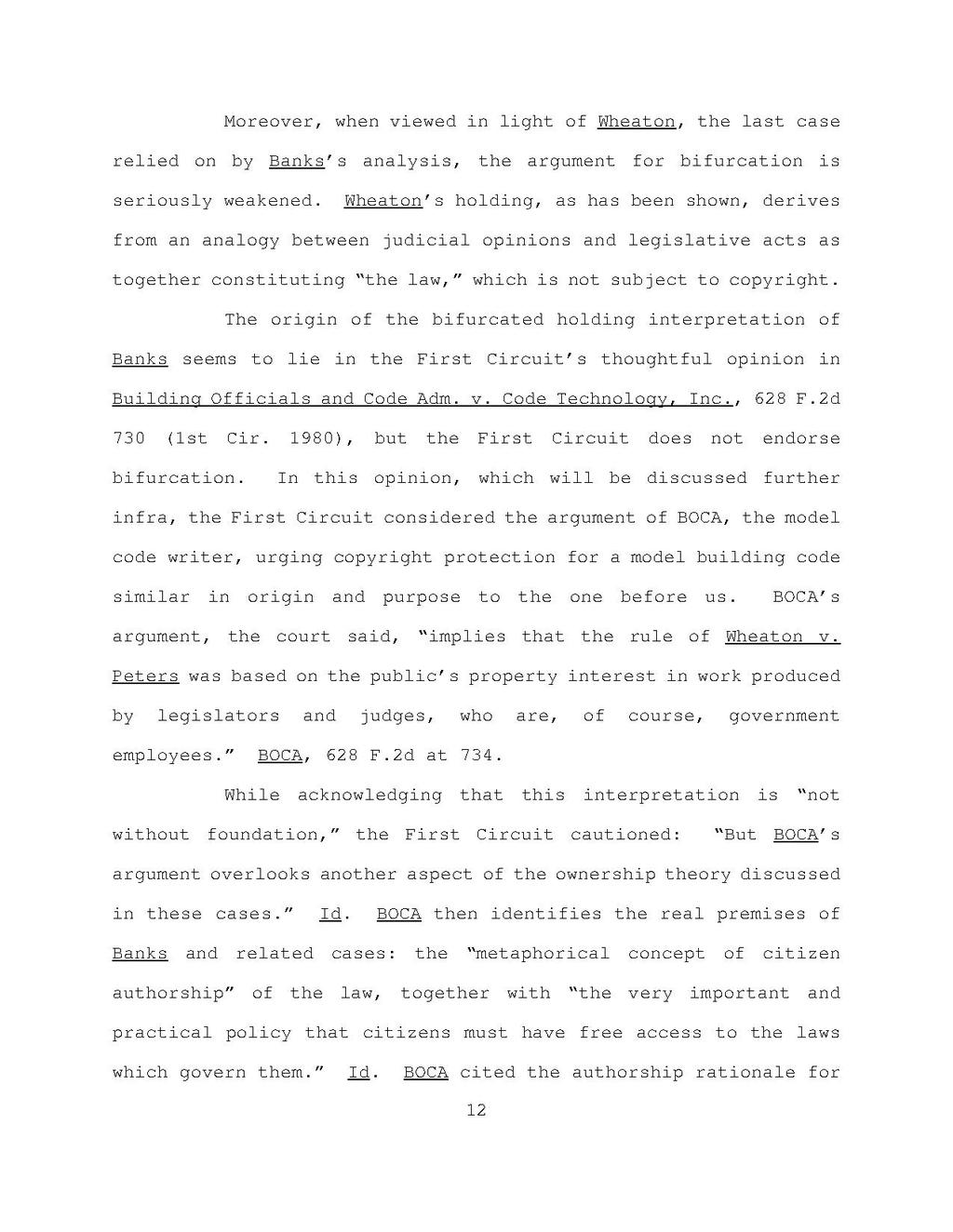Moreover, when viewed in light of Wheaton, the last case relied on by Banks's analysis, the argument for bifurcation is seriously weakened. Wheaton's holding, as has been shown, derives from an analogy between judicial opinions and legislative acts as together constituting "the law," which is not subject to copyright.
The origin of the bifurcated holding interpretation of Banks seems to lie in the First Circuit's thoughtful opinion in Building Officials and Code Adm. v. Code Technology, Inc., 628 F.2d 730 (1st Cir. 1980), but the First Circuit does not endorse bifurcation. In this opinion, which will be discussed further infra, the First Circuit considered the argument of BOCA, the model code writer, urging copyright protection for a model building code similar in origin and purpose to the one before us. BOCA's argument, the court said, "implies that the rule of Wheaton v. Peters was based on the public's property interest in work produced by legislators and judges, who are, of course, government employees." BOCA, 628 F.2d at 734.
While acknowledging that this interpretation is "not without foundation," the First Circuit cautioned: "But BOCA 's argument overlooks another aspect of the ownership theory discussed in these cases." Id. BOCA then identifies the real premises of Banks and related cases: the "metaphorical concept of citizen authorship" of the law, together with "the very important and practical policy that citizens must have free access to the laws which govern them." Id. BOCA cited the authorship rationale for
12
